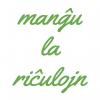訊息: 5
語言: English
Satellytes (顯示個人資料) 2024年3月3日上午3:36:32
qwigoqwaga (顯示個人資料) 2024年3月4日上午1:19:42
The accusative case is also used sometimes for prepositional statements, I believe typically when they indicate some kind of motion. For example, "en domo" would be in the house whereas "en domon" would be into the house. Similarly, "hejme" means at home whereas "hejmen" means toward home.
There's some other uses of the accusative as well. Lernu has a grammar page that explains all the possible accusative uses.
If you have a hard time finding explanation of the accusative case in Esperanto, you could also trying looking up explanations of the accusative in Latin and see if that helps you understand it better.
Metsis (顯示個人資料) 2024年3月4日上午7:18:13
The Youtube channel Langfocus has a short, general introduction to the concept of grammatical case.
This site, Lernu, has quite large section explaining the Esperanto grammar, incl. how to use accusative. Note that at the bottom of the page you can change the language of the page.
Altebrilas (顯示個人資料) 2024年3月4日上午11:39:30
Pomon mi manĝas
Ŝanĝo de loko
Mi iras Parizon
Tempo:
Mardon, mi iras al kinejo
Mezuro:
La tablo estas du metrojn longa.
Satellytes (顯示個人資料) 2024年3月7日下午11:18:06


